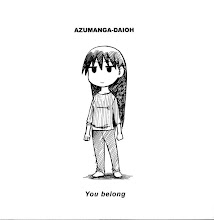Spice and Wolf: Merchant Meets the Wise Wolf (狼と香辛料 merchant meets the wise wolf) is a 25 episode dramatic romance based on the light novel series Spice and Wolf by Hasekura Isano. This second retelling of the light novel originally aired during the Spring and Summer of 2024.
Kraft Lawrence is a traveling merchant in a time of transition from the old ways to the new. Traversing a world that is falling under the sway of a central religious authority, focused on sweeping away historical beliefs and practices he does what he can to earn profits through the exchange of good across the land. He travels to a small farming village during their wheat harvest in order to acquire some quality grain to trade in a city. He leaves with more than he bargained for when the wolf spirit who has provided the village with their quality harvest for generations sneaks aboard his cart in the form of a young girl. The wolf god Holo asks Lawrence to allow her to accompany him on his travels as she desires to visit her ancestral homelands far in the north. She is curious how the world has changed around her after all of this time and fancies him as the perfect guide on her journey.
Lawrence agrees to get her safely to the northern lands, something endearing the ancient wolf girl to him along with his compassionate nature. Holo does not want to be a burden on the man and offers her abilities at his disposal. She has an innate ability to detect untruths and a keen sense of negotiation, given her long life and unnatural abilities. However, her long life has made her shrewd and patient, never offering her services outright, waiting for Lawrence to realize that he would be in a better position by asking for her help. The arrangement seems to benefit both of them until the Church begins to sniff around, rumors traveling about Holo's potential unnatural nature. Wolves have always been feared and hated by humans, so Holo does what she can to conceal her true nature, but the power of the Church means it is not as easy as hiding her ears and tail.
The original version of the anime has long been on my list of series that I need to watch. It has been revered for a long time and considered a quality romance as well. The reboot seemed like a perfect opportunity to finally see what all the fuss was about.And I was pretty disappointed. I don't really see why this is considered a romance when there is very little in the way of romantic connections between Holo and Lawrence. Sure, she has a level of admiration for him that is evident through a lot of her actions regarding him and his safety. But the story focuses almost exclusively on the dangers presented by the growing authority and autonomy of the 'church'. Lawrence struggles at every turn to keep Holo's true nature hidden while protecting his own livelihood.
This is really a story about mercantilism and the perils of making enemies in a world were its easy to be disappeared when enough power moves against you. The art isn't bad, the character designs and world building is solid as well. The biggest shock was Holo's attitude when I finally got around to watching the series. I had only ever been exposed to it through still images and a narrative that belies the reality of the story and her personality. I was very surprised to learn that she is not some subservient and agreeable teenage maiden. Instead she is head strong, calculating and very very shrewd. She plays games with Lawrence but when she needs him to understand that she holds all of the cards she doesn't hold back. Holo...instead of being a male fantasy of the ideal subservient partner, is a quality representative for woman's equality and independence. The story is good, the world is detailed but its not the story I was looking for and its not the style of world I tend to enjoy. The problem is with me...not Spice and Wolf.
The series is available on Crunchyroll.


















































